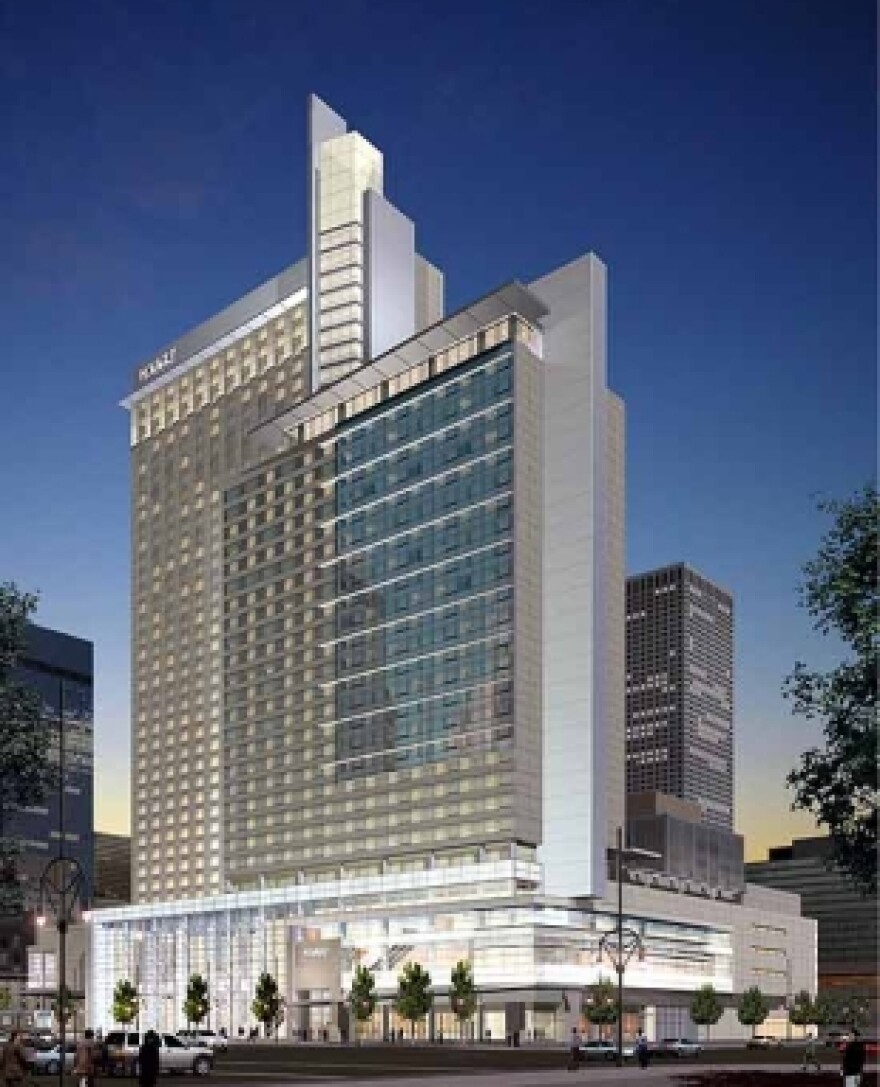Both groups opposing the planned 800-room convention hotel adjacent to Bartle Hall in downtown Kansas City say they are standing their ground.
The City Council heard lengthy presentations on Thursday from city staff as well as representatives of the developers of the proposed hotel and convention and tourism officials.
The council is gathering information in preparation for a decision on what to do about a petition drive for a public vote on whether the city should be financially involved in developing the hotel.
The previous City Council this summer committed to issuing bonds to underwrite financing of the development, as well as a donation of a parcel of land and cash contributions that could come to about $50 million in tourism tax revenues.
The presenters argued Thursday that the hotel will be good for business in Kansas City and that the city's commitment is virtually free of risk to general fund revenues. They argued the deal asks the city for a lower cash commitment overall than recent convention hotel incentive packages in other cities.
Both developers and some council members expressed concern about whether the matter of submitting the hotel plan to the voters would undermine efforts to sell the bonds that finance it and increase construction costs to the point that the city could not live up to its commitments and have to scuttle the deal.
Developers said binding contracts were signed in May, and that they need to be able to complete bond financing arrangements by January 2016. Otherwise, said developer representative Steven Rattner, the deal could fall through. He inferred that by allowing a vote the city could be seen as not living up to its contractual commitment.
Dan Coffey for the group Citizens for Responsible Government, which gathered the referendum petition signatures, sais on Friday, that the arguments presented at the Thursday hearing were irrelevant to the ballot measure.
He said the petitions submitted by his group simply say the citizens want to vote on the matter before the city spends their money.
Coffey also said he had doubts about the dates Rattner said the binding agreements were signed and whether other details about the memoranda of understanding were clearly and accurately presented at the hearing, which at one point he called “a dog and pony show.”
He would not say whether his group would sue the city if the council elects to not put the matter to a public vote. He said the committee has lawyers among its members and he would have to ask their advice on that.
But Coffey's group is not the only opposition to the hotel deal. At Thursday's hearing, Patrick Touhey, who identified himself as representing the Show-Me Institute, also rejected the developers' line of reasoning, saying the very fact that they want financial assistance from the city brands the project as unnecessary and not supported by current market realities.
The council has approximately 60 days remaining in which to come to a decision as to whether to place the hotel agreement on a public ballot or accept the city attorney's interpretation that it can reject the ballot issue as “legally flawed” because it could force the city to ignore already binding signed agreements.
Coffey said if the City Council does take 60 days or nearly 60 days to decide, he considers each day of delay evidence that they intend to ignore the wishes of those who signed the petitions.



